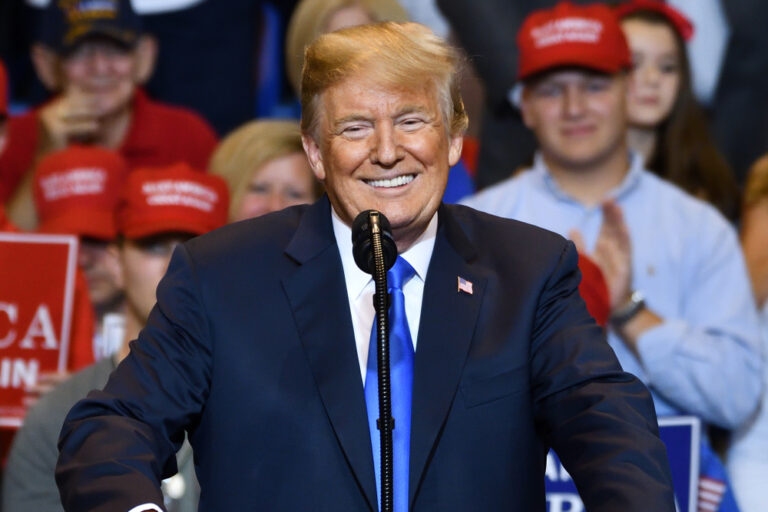WATCH: Biden Awkwardly Slips Down Concrete Steps, Nearly Faceplants at G7
President Joe Biden had another unfortunate moment and slipped down the steps at the G7 Summit in Japan in May of 2023, nearly faceplanting on the concrete as he slipped and stumbled his way down a small set of stairs. While he remained upright despite looking like he stepped on a banana peel, it was yet another unfortunate moment for the elderly president.
The moment added yet more ammunition for critics of the president who allege that he is physically unfit for the job, particularly when paired with his dazed and confused look and old age. Despite assurances from the president’s physicians that he is in good physical shape, the octogenarian president, Biden, has had and unfortunate series of dips, trips, and tumbles throughout his public appearances as president.
For example, he infamously tripped twice while ascending the stairs for Air Force One, spawning numerous memes and mocking videos. Similarly, in July of 2022, he fell from his bike during a ride with the First Lady at Rehoboth Beach.
Watch the incident here:
In addition to the awkward
slip, President Biden had to postpone a meeting with “The Quad,” which is India, Australia, Japan, and the United States and meant to combat China’s rising influence in the Pacific. Announcing that postponement, White House Press Secretary Karine Jean Pierre said:
After President Biden had to postpone his trip to Australia, the Quad leaders agreed that they would hold their summit in Hiroshima to ensure that the four leaders could come together to mark the Quad’s progress over the past year. So tomorrow, in addition to the G7, President Biden will participate in the third in-person Quad Leaders’ meeting with Prime Minister Anthony Albanese of Australia, Prime Minister Kishida Fumio of Japan, and Prime Minister Narendra Modi of India. Along with sharing strategic assessments, the leaders will welcome new forms of Quad cooperation on secure digital technology, submarine cables, infrastructure capacity building, and maritime domain awareness. President Biden thanks Prime Minister Albanese, as well as the Prime Ministers of Japan and India, for their flexibility, and he looks forward to rescheduling his trip.
Additionally, the G7 leaders used the meeting in Hiroshima to reiterate their anti-nuclear weapons stance, a potentially positive sign as tensions with Russia continue to heat up, saying, in part:
We, the Leaders of the G7, met at a historical juncture in Hiroshima, which together with Nagasaki offers a reminder of the unprecedented devastation and immense human suffering the people of Hiroshima and Nagasaki experienced as a result of the atomic bombings of 1945. In a solemn and reflective moment, we reaffirm, in this first G7 Leaders’ document with a particular focus on nuclear disarmament, our commitment to achieving a world without nuclear weapons with undiminished security for all.
We underscore the importance of the 77-year record of non-use of nuclear weapons. Russia’s irresponsible nuclear rhetoric, undermining of arms control regimes, and stated intent to deploy nuclear weapons in Belarus are dangerous and unacceptable. We recall the statement in Bali of all G20 leaders, including Russia. In this context, we reiterate our position that threats by Russia of nuclear weapon use, let alone any use of nuclear weapons by Russia, in the context of its aggression against Ukraine are inadmissible. We recall the Joint Statement of the Leaders of the Five Nuclear-Weapon States issued on January 3, 2022, on Preventing Nuclear War and Avoiding Arms Races, and affirm that a nuclear war cannot be won and must never be fought. We call on Russia to recommit – in words and deeds – to the principles enshrined in that Statement. Our security policies are based on the understanding that nuclear weapons, for as long as they exist, should serve defensive purposes, deter aggression and prevent war and coercion.
The overall decline in global nuclear arsenals achieved since the end of the Cold War must continue and not be reversed. The Treaty on the Non-proliferation of Nuclear Weapons (NPT) must be upheld as the cornerstone of the global nuclear non-proliferation regime and the foundation for the pursuit of nuclear disarmament and peaceful uses of nuclear energy. We reaffirm our commitment to the ultimate goal of a world without nuclear weapons with undiminished security for all, achieved through a realistic, pragmatic and responsible approach. In this regard, Japan’s “Hiroshima Action Plan” is a welcome contribution. We deeply regret Russia’s decision to undermine the New START Treaty, and call on Russia to enable a return to full implementation of the Treaty. At the same time, China’s accelerating build-up of its nuclear arsenal without transparency nor meaningful dialogue poses a concern to global and regional stability.


